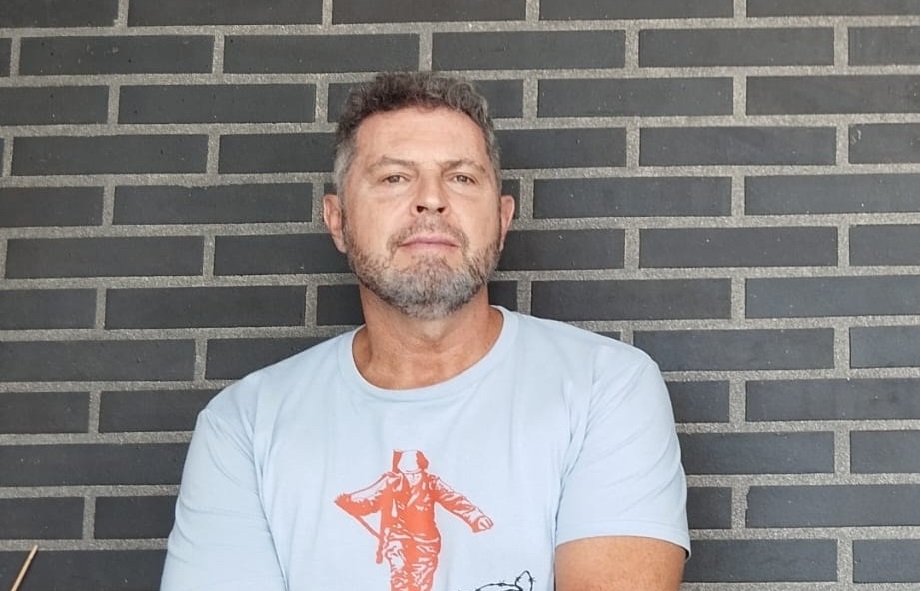- HistoryHumanities
- 5 de December de 2024
- No Comment
- 9 minutes read
Alberto Sabio: “He [Maurín] spent a third of his life in prison before turning 50”
![Alberto Sabio: “He [Maurín] spent a third of his life in prison before turning 50”](https://educationalevidence.com/wp-content/uploads/2024/11/Sabio-Alberto.jpg)
Interview with Alberto Sabio Alcutén, historian
Alberto Sabio: “He [Maurín] spent a third of his life in prison before turning 50”


Alberto Sabio, Professor of Contemporary History at the University of Zaragoza, has recently published Excomunistas. De la Revolución a la Guerra Fría cultural: Joaquín Maurín (1896-1973). The book is a comprehensive biography of the founder of the Bloque Obrero y Campesino (Workers’ and Peasants’ Bloc) and the POUM, Partido Obrero de Unificación Marxista (Workers’ Party of Marxist Unification), before the Spanish Civil War. A necessary work, as it recovers the lesser-known half of Maurín’s life: his years in New York leading a literary and press agency of pivotal importance to Hispanic culture.
An obvious first question: how did you come across Maurín, and when did you decide to immerse yourself in his post-war archives?
Maurín was one of the most significant social leaders of early 20th-century Spain, yet his figure remained both little known and severely misrepresented. I wanted to move beyond uncritical adulation but also to address the unproven slanders. Crucially, his extensive correspondence, preserved at Stanford University (California) and the University of Miami, had yet to be studied. The project took shape through the analysis of these materials.
“Maurín was one of the most significant social leaders of early 20th-century Spain, yet his figure remained both little known and severely misrepresented”
Why is this second, more literary and social-democratic Maurín important?
Beyond the man himself, this part of the book sheds light on the cultural dynamics of the Cold War, the opposition to Francoism, the preparations for the so-called “Munich conspiracy,” discussions around reconciliation in Spain, and the journey of many former communists toward democratic socialism.
What role did Ramón J. Sender play in Maurín’s life?
Sender was a pillar of Maurín’s agency, writing hundreds of articles for it. Initially, before the agency was fully established, he refused to accept payment for his contributions. Sender visited Maurín in his New York home and entrusted him with the manuscript of Mosén Millán, later published as Requiem for a Spanish Peasant. Maurín was among the first to read it and facilitated Germán Arciniegas’s role as the preface writer for its first edition. Furthermore, one of the characters in Sender’s Crónica del Alba1 is clearly inspired by Maurín.
Who was the painter Viladrich, and why was he so important to your subject?
Viladrich persuaded Pío Baroja to run as a Republican candidate for deputy in Fraga (Huesca) during the February 1918 elections, marking Joaquín Maurín’s political baptism as he assisted Baroja’s campaign. This experience allowed Maurín to study the anatomy of rural political bossism. Years later, the patron Archer Milton Huntington, founder of the Hispanic Society of America in New York, acquired most of Viladrich’s works for the society’s museum. During Maurín’s New York exile, these paintings provided solace and evoked profound emotion as he viewed depictions of the Cinca River banks in the heart of Manhattan.
How did the ALA function?
It operated in a rather makeshift manner: Maurín handled everything himself, even writing under various pseudonyms to create the impression of a larger team. Eventually, he distributed columns and articles by renowned authors—Miguel Ángel Asturias, Uslar Pietri, Gómez de la Serna, Alfonso Reyes, Vasconcelos, Madariaga, Neruda, among others—to nearly a hundred Spanish-language newspapers across Latin America and the U.S. A portion of the proceeds went to the agency, and another to the authors. Maurín called it a “cooperative” or a “brotherhood,” though it was neither. Notably, there wasn’t a single legal dispute during the agency’s 30-year existence.
“Maurín handled everything himself, even writing under various pseudonyms to create the impression of a larger team”
What is your view of Julián Gorkin?
Gorkin’s trajectory diverged from Maurín’s in several key respects. For one, Maurín did not receive funding from U.S. foundations, nor were his books published by the Francoist regime (as was the case with the story of Valentín González, El Campesino, thus providing anti-communist fodder for Francoist propaganda). Gorkin also never joined the PSOE. He was often involved in pseudo-conspiracies and petty intrigues, and his reputation among former POUM colleagues was far from stellar.
And Víctor Alba?
Together with Arciniegas, Sender, Granell, and Portela, Víctor Alba was among Maurín’s closest friends. They referred to each other as “Kim” and “Pedro.” Alba’s real name was Pere Pagès, and their friendship dated back to La Batalla, the newspaper founded in Barcelona in 1922. Pere, barely in his twenties and with some knowledge of English, introduced George Orwell—then an anonymous foreigner—to Barcelona. We’ve identified nearly a thousand articles by Víctor Alba for Maurín’s agency between 1957 and 1980.
What was Maurín like as a columnist?
He wrote with wit and conciseness, often starting with an anecdote or a journey to introduce the central idea of his column. He covered Khrushchev’s visit to the UN, the assassination of Congolese Prime Minister Patrice Lumumba, book reviews, travel columns, space exploration, and even the challenges of introducing disposable razors in the United States.
How is it possible that someone like Germán Arciniegas has been so forgotten?
It is indeed surprising. His Biography of the Caribbean (1945) was, before One Hundred Years of Solitude, the most widely circulated book by a Latin American author. By the time Maurín contacted him, Arciniegas had already served twice as Minister of Education and founded the Colombian Student Federation. His works sought to deepen the continental consciousness and cultural identity of Ibero-America.
“His Biography of the Caribbean (1945) was, before One Hundred Years of Solitude, the most widely circulated book by a Latin American author”
Was Maurín unlucky?
He spent a third of his life in prison before turning 50. He had considerable credentials in the anti-Francoist struggle (interrogations, military tribunals), but he did not live to see the Transition, when these experiences began to be valued—while many others transitioned from dictatorship to democracy without a hint of self-reflection.
After this monumental work, what are you currently working on?
I’m very interested in further exploring the cultural Cold War and revisiting the study of the Spanish peasantry, which was the subject of my doctoral thesis.
___
1Crónica del Alba, by Ramón J. Sender, has been translated into English, but under a different title: The War in Spain. However, this translation does not include all the volumes that make up the Crónica del Alba series; it focuses mainly on the first two: Valentina and El Mar.
Source: educational EVIDENCE
Rights: Creative Commons

